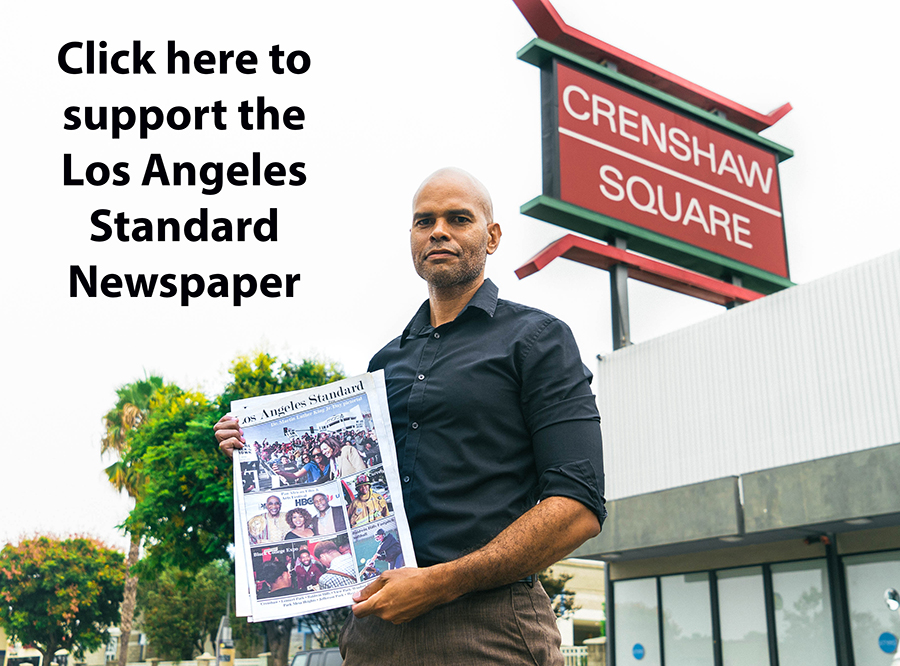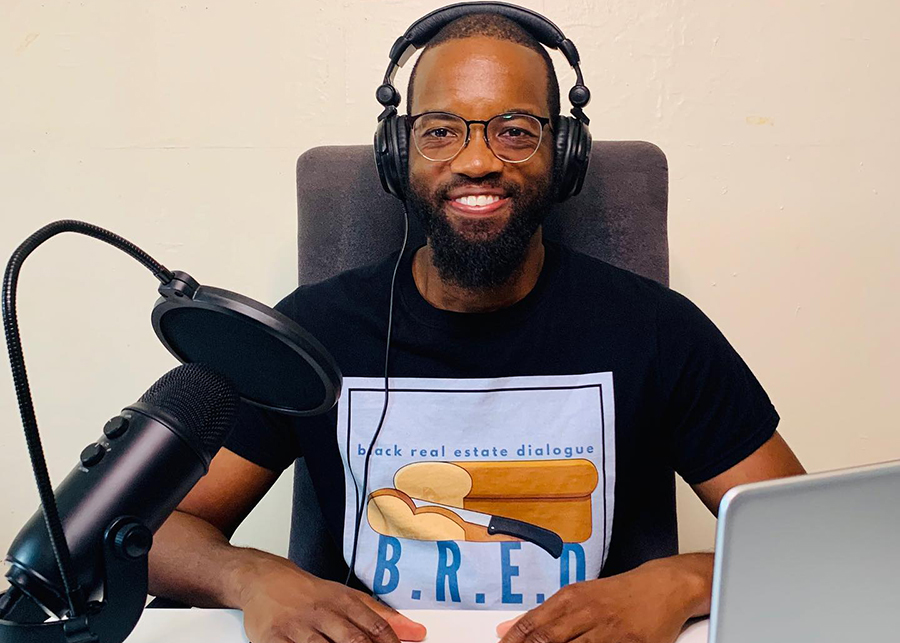The B.R.E.D. podcast highlights the stories of Black investors and host Sam Dolciné has created a real estate investors community to help others enter the field.

By Jason Lewis
Sam Dolciné created the Black Real Estate Dialogue (B.R.E.D.) to share and document the stories of successful black real estate investors.
“The goal is to share stories that aren’t being told and show our community that it is possible to invest in real estate. We know that it’s a great wealth-building tool, but rarely do we hear it from the perspective of people who look like us. On my show, I talk to Black real estate investors from all over the country. They’re able to share their stories, and they also share tangible information that can help others in our community to learn how to invest in real estate.”
Many of Dolciné’s guests are investors who develop property, or who buy real estate with the intent to flip it for profit or use it as rental property. On a recent show he interviewed developers Don Peebles and Victor MacFarlane, two of the most prominent Black real estate investors in the nation. The two developers are partnering on the Angels Landing Project, which is a $1.6 billion project in downtown Los Angeles adjacent to the historic Angels Flight Railway.
“I think that’s going to be the biggest project done by a Black team,” Dolciné said. “It’s going to bring a lot economic opportunity and jobs to Los Angeles.”
Dolciné has interviewed Mark Jones, who is a local investor and agent in South Los Angeles who helps people buy property and teaches them how to invest in real estate. He also interviewed Page Turner, who is a house-flipping expert and the host of HGTV’s “Fix My Flip.” The information given on Dolciné’s podcast gives the listening audience some guidance to break into real estate investing.
“Something that people will hear from my guests and from myself is to just get started,” Dolciné said. “You need the information and learn as much as you can about real estate. Once something resonates with you, whether it’s flipping, or being a landlord, then double down on that and figure out how you can get started. We talk about very basic concepts on the show. Like certain loan programs and down payment assistance; ways for the average person to get into this space. I have guests who have been super successful, but I always make it a point to ask how they got started. Because everybody got started somewhere. Nobody got started with a billion dollar project. Nobody started with 100 rental units. The main thing that I want people to get out of the show is that you can do it too, here are the examples of people who have done it who look like you, and here’s how they did it.”
One of the inspirations behind Dolciné creating this podcast was when he learned about the racist practice of redlining, which was a segregation era policy where banks would not finance home loans in Black communities.
“That was one of the motivations in starting the show,” Dolciné said. “I didn’t learn about redlining in depth until I was 28 years old. I was stunned. Essentially for many years it kept us out of homeownership. It just closed a lot of opportunities for us. For me, it was crazy to see that areas where we mostly lived, a redline was drawn around it and it was seen as undesirable. So you couldn’t get a loan to buy property, and there wouldn’t be investment in that community. When I learned about things like that, and racial covenants which prohibited the sale of property to not only Black people but also other minorities. All of those other (White) communities got a head start. We’re hundreds of years behind, and that’s a motivation for me to continue to do the show because we have a lot of catching up to do.”
Redlining was one of many factors that created the wealth gap in this country, but Dolciné believes that another issue is preventing more Black people from entering the real estate field.
“I think that it’s more of an information gap than an income gap as far as it relates to property,” he said. “Because there are programs where you can get in for zero percent down. Obviously there are some costs in there, but the NACA program is zero percent down. FHA is as low as 3.5 percent down. Now living in L.A., it can take some time to save for that number, but we can also calibrate with each other. There are different ways to skin the cat.”
While the podcast provides a lot of great information, Dolciné has created an online real estate course where the information is presented in a more structured manner. He also created the B.R.E.D. real estate investing community, where subscribers ($25 per month) can interact with experienced investors.
The podcast, courses, and investor community are ways to combat the gentrification issues that are impacting Black communities in Los Angeles. One issue that is contributing to gentrification is Black people selling the property that they inherit.
“We’re trying to build generational wealth,” Dolciné said. “If you sell, but you don’t have a plan to keep that money growing, like are you going to invest in another house? How are you going to keep that money going so that everything that your grandparents worked for doesn’t just get blown in Vegas. So I think somebody who plans to sell, you need to have a plan for that money.”
For more information on the Black Real Estate Dialogue, visit www.blackrealestatedialogue.com and follow them on social media. Past episodes of the podcast can be viewed on YouTube.









